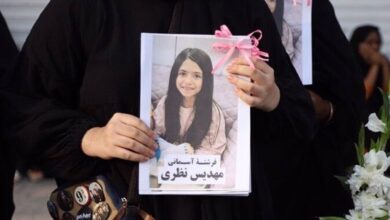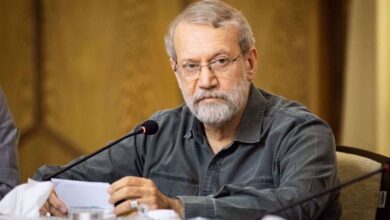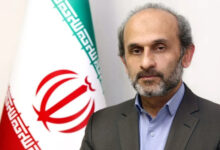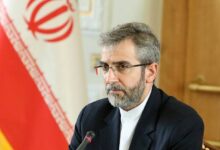{INVESTIGATIONS} The half-truth, politics of Nigerian Minister’s declaration on citizens studying in Benin, Togo
*As Benin’s published guide on accredeted degrees awarding universities proves Nigeria's claim 5 untrue *We accredited 95 institutions to run degree programmes – Beninoise Minister *Nigeria’s Minister, Prof Tahir Mamman’s declaration show of misunderstanding – ISCG Varsity Registrar *Cheers as ESM Benin University, IUG University, ISCG University listed among accredited universities in Benin *Nigerian private universities’ owners envying Benin, Togo behind issues – Concerned Registrar *Says Minister in Cotonou said information used by Nigeria's Minister unauthorised *We are duly accredited to award degree certificates, Benin varsities reply Nigerian govt *Stop playing politics with future of Nigerian youths studying in neighbouring countries, Nigerian leaders warned
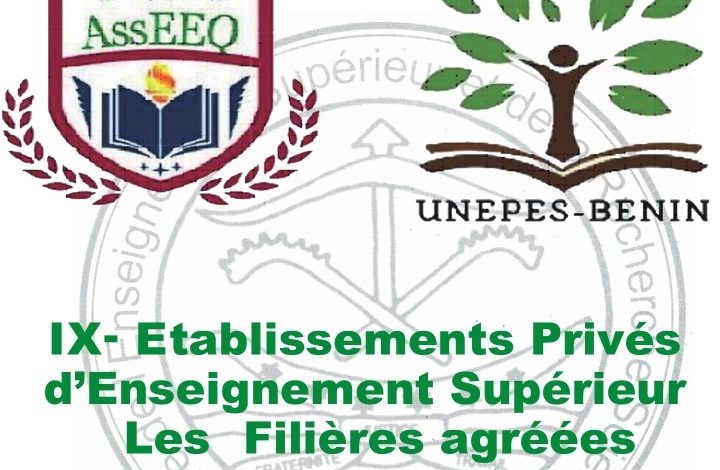
By BASHIR ADEFAKA
Another parent who spoke from Kaduna, North West Nigeria, simply said, “My warning to Nigerian government leaders is simple: Stop playing with the future of Nigerian youth studying in the neighbouring countries because up till now I have now seen anybody in this government blacklisting diploma or degree certificates from any of Chicago in United States of America or Toronto in Canada. What is their issue with neighbouring nations of Benin and Togo? Look! They are sovereign nations like you, let them breathe and, for you to know, degrees obtained by our children from countries stand!”
The last four days have not been good with Nigerian students who, like their pairs that took to the Western and Eastern World in pursuance of educational careers, had found solace in the Republics of Benin and Togo as accessing admission into Nigerian universities is been like thug-of-war were told their degree certificates are fake and would no longer be recognized because their alma maters are unaccredited by Beninoise and Togolese governments.

The Nigerian authorities, which made this devastating and depressing announcement, for reasons best known to them, claimed that the Republic of Benin only has five universities that are approved and accredited to run degree programmes while Republic of Togo has only three. They, therefore, declared that graduates of several other mainly private universities, who had obtained their degrees (called diploma in those neighbouring countries like in western world) between 2019 through 2023 are parading fake degree certificates, taking them through the inconveniences of high density trauma.
In furtherance to this, the Nigerian government ordered that 22,500 such people whose data, they claimed, were captured through the National Youth Service Corp (NYSC) and have been in the employment of government in the country be fished out and sacked.
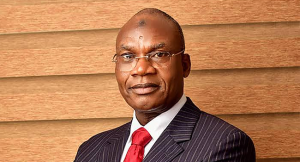
The confusion, however, started when, in a guide sent to The DEFENDER on Monday from the Republic of Benin’s Ministry of Higher Education countered the Nigerian Education Minister’s postulation of “only five accredited universities”, as it listed 95 institutions of higher learning accredited to run degree programmes of different types. Our findings further showed that leaders in Africa’s most populous country are again found to be involved in avoidable political playing ball even with future of today’s youth whose rights to education and security should have been well protected to enable them, not only a handshake with the future but also, serve as truly effective leaders of tomorrow for the country.
This globalized online newspaper reports that on Friday August 23, 2024, Minister of Education in the country, Professor Tahir Mamman, had sent out the sad news through an address marking his first year anniversary in office as Minister of the Federal Republic of Nigeria, when he declared that over 22,500 Nigerians were parading fake certificates obtained from universities in Benin and Togo between 2019 and 2023. He said over 21,600 obtained the certificates from unaccredited universities in the Republic of Benin, while about 1,105 obtained theirs from some unaccredited universities in Togo.
The Minister said some of the numbers were harvested from records from the National Youth Service Corp (NYSC) and other sources. “Sadly, these people have used the fake certificates to apply and secure job opportunities in government and private organizations with the mindset that they schooled abroad, while people who studied day and night are out there looking for job opportunities,” he said.
He said even within the countries, Benin and Togo, these universities were not accredited to offer degree programmes. “I don’t know how Nigerians chose to go to unaccredited institutions abroad to ‘study’. Our investigations also indicated that many of the people never even attended the school physically,” he said, adding that, a circular was being prepared from the Office of the Head of Service of the Federation that would enable them fish out the people for due prosecution and also encouraged the private sector to do same.
Although statement by the Nigerian government was specific saying “unaccredited universities” in the two neighbouring countries, the effect of that official statement has been taken beyond what was said as many Nigerians, either holding certificates from the country or are still about to obtain theirs from there, are looking down upon themselves to think that they have been unfortunately and adversely affected despite having spent required years of studies from three, four years as courses outside Nigeria are meant to take and their parents having spent fortune to ensure they become successful in their academic pursuits.
The feeling in those students, who should have no reasons to fear, became worsened when in a follow public statement by the same Nigerian Education Minister he listed only five universities in Republic of Benin and three in Republic of Togo that are approved and accredited by the government of the country to run degree courses.
But that information provided by him was not correct, respondents who spoke to The DEFENDER in the course of its investigations across the three countries said. They wondered how Nigerian government, believed to be the leader in Africa, could take an information from anyone in the Republics of Benin and Togo and not think twice or properly cross-checked when told that only five and three universities approved in the respective countries are public institutions and he did not ask questions as to how a country system runs with public alone without private sector participation in the 21st Century.
Our reporter, who got highly inquisitive by this ambiguity, however, discovered that the politics being played with the future of Nigerian youths, whom parents took out to the neighbouring countries – as gaining admission into Nigerian universities turned a man-know-man affair and found the dollars-based requirements to take further for education in Western or Eastern countries unaffordable.
Concerned universities’ registrars
In an audio message revealing conversation between some students and a member of concerned registrars who met thee Nigeria’s Minister of Education over the more generalized announcement, two things were discovered which include that the Minister of High Education of Republic of Benin did not authorized the Minister of Education of Nigeria used in passing the “very” devastating and frustrating information to the populace of Africa’s most populous country where he heads the education sector. The second being that owners of private universities in Nigeria are behind the often issued statements that come from the nation’s Ministry of Education because of what they described “Nigerians going to neighbouring countries’ schools no longer enabling them get enough students”.
In a recorded telephone conversation with the caller, who simply identified himself as Adekanbi, one of his just finishing students, the unnamed registrar his group of other Benin Republic universities were not resting on their oars on the matter as he said it was more of half-truth information received from the Benin’s end, used by the Nigerian Minister and needless business competition posed by owners of private universities in Nigeria who work in cahoots with some officials in the Nigerian Ministry of Education to always issue policies unfavourable to students who study in the neighbouring countries.
“We too are not relaxing now. We heard the information yesterday and we have been on it. The Minister (of Education in Nigeria), I don’t know, is fighting for some people because what he discussed with us is what he was saying on TV yesterday (Saturday August 24, 2024). What they discussed with us was that they would get in touch with Benin Government and Benin Government sent the list down.
“So, I was not surprised when he mentioned five schools. When we now asked them they say it’s only public schools there and we asked, “What about private schools? Is it possible that we only have public and we don’t have private? In any country of the world, we have public and we also private. What happened to the private ones?”
“Then they now said, “Eeeh, well, Benin Government said they should be co-signing the certificates.” We now asked, “Does that make it to be non-accredited? Even if they want to be co-signing the certificates now, does that means it is non-accredited or what?”
“So, it is just a matter of time, we would fight for the students. Ha ha! They paid now and we trained them now, and we are not going to just fold our arms and be looking at their efforts go down the drain.
“We are already having meeting online, on Monday (today), we will have physical meeting, then we know the next line of action. The problem is from Benin, no Nigeria. We can go and address it from Benin because, if Benin Government sends delegation to them, that would be the end. They don’t want a situation in which we would be the ones to come and speak. They want government officials to come.”
Private universities owners envying Benin, Togo behind issues
He said, “Benin Government made a mistake. In Nigeria they say Secretary of NUC but in Benin they say DGS, Director General of General Studies. He is the one that gave wrong information to the Minister (of Education in Nigeria) and the Minister, based on that, said at least someone that gave him this information is a government official and so he has right to use the information. In fact, the Minister (of High Education in Benin Republic) said he didn’t send him to say that.
“It’s from Monday (today August 26) now that we will start battling that. And if we are able to resolve that in Benin, I know they will send their delegate or send their Ambassador to Nigeria.
“But we (concerned Registrars) they said they don’t want to see us, no wahala, that we are the ones that carried the Nigerian problem to Benin Republic.”
He said, “And the private owners of Nigerian universities are the ones behind the whole thing. They are the ones. I have called one of them now and said, “Why? Are we fighting?” and he said, “Eeeh! All of the students are now in Benin, they are in Togo, we don’t have students again.” And I said so, those ones that went to Canada, UK, US, Australia, can they go and ask them to come back to their own schools? Why targeting Benin, is it because of the proximity?
“And the man said may be they will talk to the Minister but that we people do not allow them to operate again. I said “with this Nigerian population?” How many students do we even have in Benin, self, when the sky is wide enough for all birds to fly without touching one another? From 2017 they are talking of 21,000 students. If we now say in a conventional university in Nigeria, they have more than 30,000 students now.
“I don’t know. But I can say it is mere envy. I see it as business competition. They see that these Nigerians are making it well in the Diaspora based education But we are going to resolve it. This is where we make our living from and, if we do not resolve it, we cannot sleep,” he promised.
5 Benin, 3 Togo universities listed as licensed to run degree programmes
The Nigerian government listed five Benin and three Togo universities that, in the course of our investigations, were found to be public institutions. They are: 1. Universite D’ Abomey – Calavi; 2. Universite De Parakou; 3. Universite Nationale De Sciences, Technologies Ingenierie Et Mathematiques; 4. Universite Nationale D’Agriculture and 5. Universite Africaine De Development Cooperatif. Others are the three Togo universities: 1. Universite De Lome; 2. Universite De Kara and 3. Catholic University of West Africa.
However, a source in Cotonou, who spoke to The DEFENDER via internet call, said: “If you look at the five universities they listed that are accredited to run degrees programmes in Republic of Benin, you find out that only the number one is where you can find Nigerian students doing Linguistic. From number two to five, you will never find a single Nigerian student there. The question you, as Nigerian journalist, can help us ask is, how many Nigerians are in those five universities they listed and how do you as Nigerian government think that a country will exist in 21st century with only public institution and will have no private ones participating? And it is for this reason you are sacking over 22,000 Nigerians?” He asked.
Guide D’Orientation Universitaire 2024-2025 (Licence)
In a Guide D’Orientation Universitaire 2024-2025 (Licence) copy of which was sent to The DEFENDER from Republic of Benin’s Minister of Higher Education during the course of our investigation on Monday August 26, 2024, we fin from page 62 of the guide list of private universities accredited by the Government of the country.
The approved and accredited private universities in the guide, published in French Language on the page 62 under a headline – IX: Etablissements Prives d’Enseignement Superieur Les Filieres angreees, were 36 as listed.
They include the Centre International de Formation a l’Expertise Comptable (CIFEC); Ecole de Formation des Enseignants du Secondaire (SAPIENTIA) and Ecole Superieure de Management (ESM) that is the ESM Benin University that is number 10 on the list among 36 private universities approved in the section sighted.
Benin universities speaking up
In the meantime, some of private universities in Republic of Benin are speaking up against their exclusion by the Nigerian government insisting that they are duly accredited. They included the two institutions of Institut Universitaire La Grace, IUG University (ECOTES Benin) and Institut Superieur de Communication et de Gestion (ISCG University) both in Cotonou, Republic of Benin.
IUG University
In a statement titled, “Response to Federal Government’s Recent Announcement”, the managing of (ECOTES Benin) – IUG University, signed by Dr. Praise Akogwu, Registrar, and dated 24/8/24, expressed concern about the potential impact on its students and alumni from the blanket comment by the Nigeria’s Minister of Education, Professor Tahir Mamman.
“The managing of IUG University (ECOTES Benin) has been made aware of a statement attributed to the Honourable Minister of Education, Tahir Mamman, regarding the invalidation of degree certificates from Cotonou University issued between 2019 and present. We are concerned about the potential impact on our students and alumni.
Presenting the context and clarification, Dr. Akogwu said, “In January 2024, the Federal Government suspended the evaluation and accreditation of degree certificates from Benin Republic, pending an investigation and review. However, the details of this investigation and its findings have not been made public.”
On accreditation and legitimacy he said, “Contrary to the Minister’s claim that only five universities in Benin Republic are accredited, the High Minister of Education in Benin Republic has published, a list of 95 accredited schools, including Ecole de Technicians Superieurs du Benin (ECOTES) – IUG University which is listed as number 12 and 70. The Benin Ministry of Education has legally authorized our institution since 2003, and our legitimacy has been communicated to the Nigerian government through diplomatic channels.”
On assurance and next steps, he said, “We assure our parents, students, and alumni that we are seeking further information from the government to clarify the situation. We cooperate fully with the authorities and seek your understanding during this time.”
ISCG University
Reacting to the development in a circular addressed to “All students, staff, Stakeholders and General Public with subject “Clarification on Degree Accreditation Issues”, signed by its registrar, Lateef Saheed, Institut Superieur de Communication et de Gestion (ISCG University), also in Cotonou, the seat of government of Republic of Benin, described the Nigerian Minister of Education, Professor Tahir Mamman’s declaration that only five universities in the country have official approval to award degree certificates as possible misunderstanding.
“We wish to notify you of a recent statement by the Nigerian Ministry of Education regarding the recognition of degree certificates from universities in the Republic of Benin and Togo. The statement mentions that only five public universities in Benin Republic are officially recognized to award degrees, causing concern among students, faculty, and associated parties.
“The statement follows an inquiry into certificate fraud in Benin and Togo. However, we believe this decision might stem from a misunderstanding of the findings during the committee’s visit to the Ministry of Higher Education in Benin Republic.
“We fully acknowledge the efforts to uphold educational standards but want to clarify that private institutions in Benin Republic, including ISCG, are authorized to grand degrees and meet accreditation requirements. We are engaging with the relevant authorities to resolve this matter justly.
“We encourage our staff, alumni, students, and stakeholders to stay calm as we address this issue. We are committed to updating you on developments and value your continued support.”
Stop playing politics with future of Nigerian youth studying in neighbouring countries, Nigerian govt warned
Nigerian leaders, especially those in government, have been advised to watch their ways in how they handle matters involving matters associated with responsibilities they should handle for Nigerians but which they fail either to do or do well as it capable further deepening the mistrust that they currently stuffer among the people.
“My son did JUPEB in this country, Nigeria, we looked for admissions in virtually all the public universities for her to study Medicine, it was difficult, he changed to Nursing it was difficult. We then looked up to private universities where we found only one that was accredited to run medicine but costing N2.2 million and where we found Nursing, it would cost us N1.5 million. He changed her mind to Microbiology in private university and found out it would cost between N700,000 and N1 million.
“But when we got to Republic of Benin, after strict checks, the private university we found to be duly approved by government was not accredited to run medicine and nursing but Microbiology and, when the fees was converted to Naira it was N420,000. That was how we got our son to Republic of Benin where he spent completed her four years for Microbiology.
“Ordinarily, duration for diploma (degree) programme in Benin Republic, like in advanced world, is three years but for Microbiology, it is four years.
“Is this what Nigerian government is now saying should a waste?” Asked an angry parent who spoke to The DEFENDER in Lagos, on Monday.
Another parent who spoke from Kaduna, North West Nigeria, simply said, “My warning to Nigerian government leaders is simple: Stop playing with the future of Nigerian youth studying in the neighbouring countries because up till now I have now seen anybody in this government blacklisting diploma or degree certificates from any of Chicago in United States of America or Toronto in Canada. What is their issue with neighbouring nations of Benin and Togo? Look! They are sovereign nations like you, let them breathe and, for you to know, degrees obtained by our children from countries stand!”


